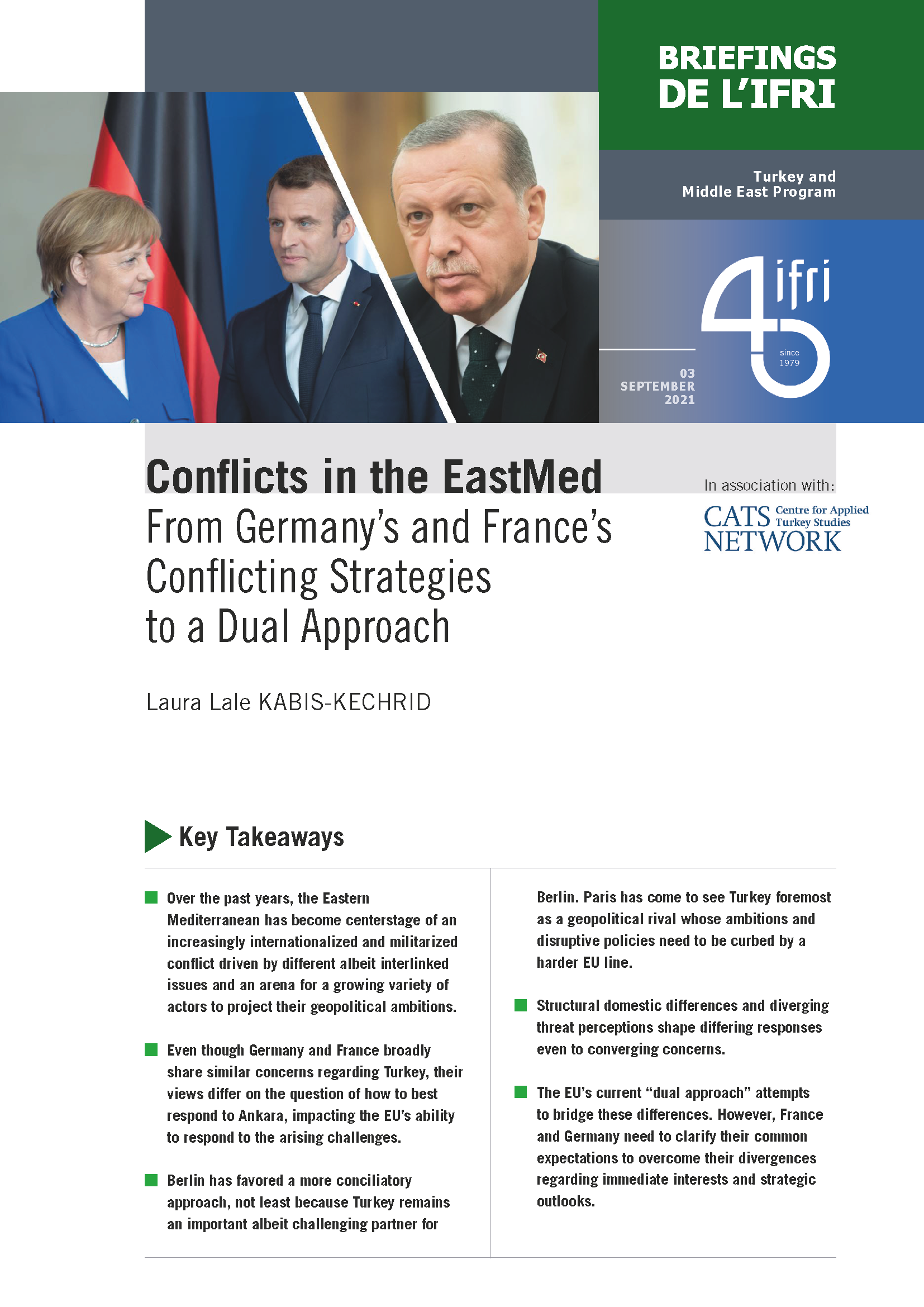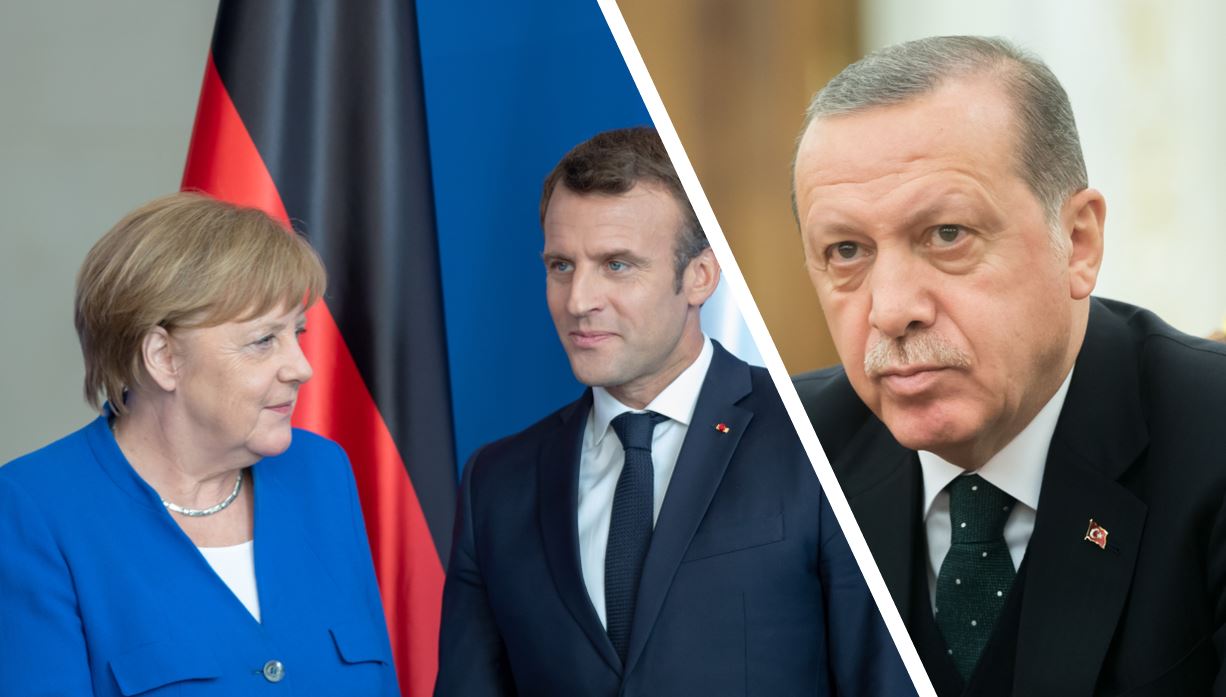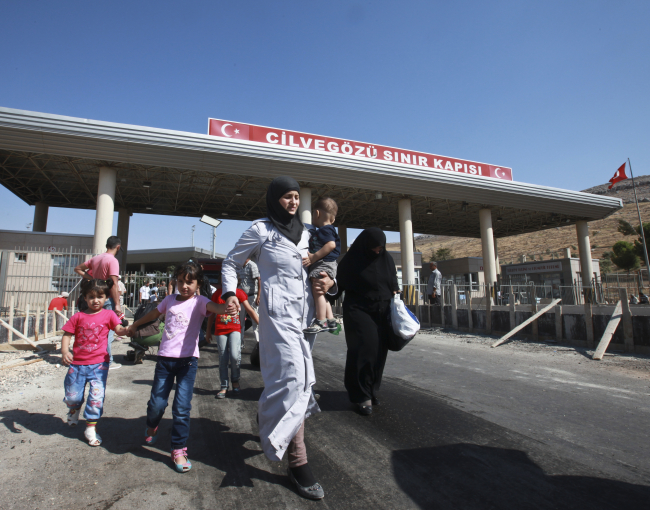Conflicts in the EastMed: From Germany’s and France’s Conflicting Strategies to a Dual Approach


- Even though Germany and France broadly share similar concerns regarding Turkey, their views differ on the question of how to best respond to Ankara, impacting the Europenan Union’s (EU) ability to respond to the arising challenges.
- Berlin has favored a more conciliatory approach, not least because Turkey remains an important albeit challenging partner for Berlin. Paris has come to see Turkey foremost as a geopolitical rival whose ambitions and disruptive policies need to be curbed by a harder EU line.
- Structural domestic differences and diverging threat perceptions shape differing responses even to converging concerns.
- The EU’s current “dual approach” attempts to bridge these differences. However, France and Germany need to clarify their common expectations to overcome their divergences regarding immediate interests and strategic outlooks.

Available in:
Regions and themes
ISBN / ISSN
Share
Download the full analysis
This page contains only a summary of our work. If you would like to have access to all the information from our research on the subject, you can download the full version in PDF format.
Conflicts in the EastMed: From Germany’s and France’s Conflicting Strategies to a Dual Approach
Related centers and programs
Discover our other research centers and programsFind out more
Discover all our analysesRussia, the Palestinians and Gaza: Adjustments after October 7th
The Soviet Union (USSR), and subsequently the Russian Federation as its internationally recognized legal successor, has consistently sought to play a visible role in efforts to resolve the Israeli-Palestinian conflict.
Canada’s Recognition of a Palestinian State: What Consequences on its Foreign Policy Toward Palestine?
On September 21, 2025, Canada became the 148th of 157 countries to recognize Palestine as a state. It did this with the United Kingdom (UK) and Australia, defying the United States (US) and Israeli opposition.
How to Jumpstart Economic Recovery in Syria? The role of syrian entrepreneurs in Turkey
This report examines the potential role of Syrian-partnered companies operating in Türkiye in supporting economic recovery and reconstruction efforts in Syria. Based on data collected through field research and surveys conducted by the Economic Policy Research Foundation of Türkiye (TEPAV), the report provides an overview of the business characteristics, sectoral distribution, and cross-border economic activities of Syrian entrepreneurs. The report explores how this business activity could contribute to restoring supply chains, stimulating local production, and generating employment.
Indonesia and the Palestinian Cause
During his inaugural presidential speech on October 20, 2024, Indonesia’s incumbent president, Prabowo Subianto, iterated certain principles central to the philosophical foundation of the Indonesian nation. He noted Indonesia’s longstanding foreign policy of non-alignment or “bebas dan aktif” (free and active) and its aversion to military pacts.










